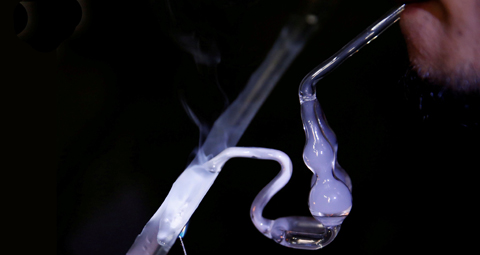BY Peter Diamond | October 18 2019 | ![]() 0 COMMENTS
0 COMMENTS ![]() print
print

Bishop criticises SNP plan to decriminalise drugs
Publication Date: 2019-10-18
Plan to decriminalise drugs is 'extremely dangerous', Church says.
The Catholic Church has slammed an SNP decision to back the decriminalisation of drugs as ‘dangerous’ and ‘retrograde.’
At the SNP conference in Aberdeen, which took place from October 13-15, the party, who are in government in Scotland, passed a resolution branding current drug control legislation as ‘not fit for purpose.’
However, this week the Catholic Church and the Bishop of Dunkeld Diocese have rejected any moves to decriminalise drugs, calling them ‘dangerous.’
During the summer it was revealed that drug-related deaths in Scotland hit a record high, with 1,187 deaths in 2018, making our country the drug-death ‘capital’ of Europe.
Devolution
Existing drug legislation—covered by the Misuse of Drugs Act 1971—is under control of the UK Government but at the SNP conference delegates called for drug laws be devolved to the Scottish Parliament in order to tackle the issue.
The SNP said its aim is that through the decriminalisation of drugs ‘health services are not prevented from giving treatment to those that need it.’
Dundee was revealed to have the highest proportion of drug-deaths in Scotland during the last 12 months with a rate 0.31 per 1,000 of the population.
Additionally it was revealed last weekend that the rate of people dying of drug-related deaths in Dundee last year was double that of the whole of Portugal.
Difficult
Bishop Stephen Robson, whose Dunkeld Diocese includes Dundee, said the proposals are very ‘dangerous’ and not the solution to ‘horrific problems’ due to alcohol and drugs use.
“This is an extremely retrograde and dangerous policy for the SNP to pursue in the present climate,” he said. “Is this the kind of Scotland the SNP want to build for the future of our country’s children?”
“Our young people face enormous pressures from society, major psychological issues, which sadly result in a large number of suicides.
“Dundee, at the heart of the Dunkeld Diocese, has recently been given the worst suicide rate in mainland Scotland for the second year in a row.
“These are big challenges and we play our part in helping combat these issues by supporting those that need it most within our parishes.
“I think we have lost the battle on a number of issues but we must not ever derail from our values and principles just because modern society rejects them.”
Crisis
In July a cross-party group of MSPs has launched a petition calling on the UK and Scottish governments to do more to end Scotland’s ‘drug death crisis.’
A spokesperson for the Catholic Church called every death by drugs a ‘tragedy’ and called for better prevention programmes, long-term recovery strategies and rehabilitation for drug users.
“Indeed, society must come together to create the conditions for people to live free from drugs, by tackling the deeply entrenched and inter-related scourges of poverty, inequality, homelessness and addiction,” a spokesperson said.
Help for users
Scottish Conservative public health spokeswoman Annie Wells said: “We don’t think Scotland’s drugs crisis will be helped by making it easier for people to access them.
“The SNP government wants to wave a white flag when it comes to the war on drugs. We’d prefer to see the justice system get tough on those who supply and deal drugs to our communities and ruin the lives of thousands.
“That should be matched by more help for users—the vast majority of whom want to beat addiction—to stop taking drugs for good and turn their whole life around.”
Monica Lennon, Labour shadow cabinet secretary for health and sport, said the recent rise in drug deaths was ‘entirely preventable’ and called on the Scottish Government to ‘back up its promises with action.’
“The next UK Labour government will establish a Royal Commission to independently review all drugs legislation and policies but we will continue to work with others to ensure that people get the help they need now,” she added.
Crisis
Alison Thewliss, SNP MP for Glasgow Central, said there is a ‘public health crisis’ in Scotland, stating UK ministers are blocking plans to take action and are dismissing evidence, adding the UK government has a ‘cavalier attitude’ to wards Scotland’s drugs emergency.
She said: “UK drugs law is not working for Scotland. People are dying on our streets and the risk to the general public from discarded needle and transmission of bloodborne diseases is very real — yet the Tories at Westminster sit on their hands.
“The only barrier to taking real action to tackle this problem is the UK Home Office because the political will is undoubtedly there. Therefore, the answer is simple — devolve drugs law to Scotland so that the Scottish Government can take the vital steps to tackle the drug-related deaths in Scotland.










